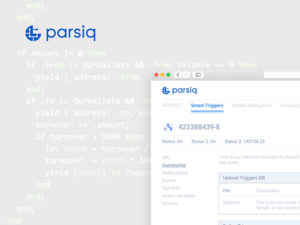2020-9-9 15:27 |
Brave privacy browser is further enhancing the security of its users with the integration of anti-phishing solutions from PhishFort, a cybersecurity firm that offers open-source tech to eliminate phishing scams on Web3.
This announcement was made through the browser’s twitter page on September 8, with an emphasis placed on crypto wallet holders who have become the target of such scams in the recent past.
Brave now uses @PhishFort's open source anti-phishing solutions for our in-browser Crypto Wallets to better protect our users. PhishFort's spam list detects crypto scams and immediately warns our users of any suspicious domains.
— Brave Software (@brave) September 8, 2020
With this anti-phishing solution in place, Brave is confident of minimizing phishing attacks within its platform. These type of scams involve being duped by a counterfeit ‘look-alike’ website to provide personal information, eventually exposing associated accounts which hackers then proceed to drain. PhishFort had highlighted this upcoming trend at the beginning of the year,
“When you’re a crypto-user, your username and password are only the starts of your problems—and phishers are beginning to realize this.”
The report went on to note that hackers are now going to the extent of exploiting specific tools used in PhishFort’s crypto interfacing. Nonetheless, the firm’s anti-phishing solution appears to be efficient, having partnered with other prominent crypto players, including MyEtherWallet and Binance Labs.
PhishFort maintains a perpetually updated list of safe and scam sites that will now be integrated within the Brave browser ecosystem. This means that Brave users will be alerted in the event one is browsing on a page suspected to be part of a phishing scam. While the details are still scanty, Brave’s roughly 18.3 million Monthly Active Users will soon be interacting with the anti-phishing feature.
Brave’s pivoting as a crypto-friendly browser is still a work in progress; the firm recently integrated a Gemini trading widget on its browser interface. That said, this lucrative market has been a double-edged sword for the Brave browser. For starters, the crypto community has been quite receptive to this browser as some continue to enjoy BAT token rewards for viewing ads. On the downside, crypto scammers are now on Brave’s case looking to phish information from unsuspecting users. A PhishFort report in June noted,
“When the reward is as valuable and anonymous as cryptocurrency assets and secrets, these attackers quickly iterate and target the most used and most talked about apps.”
The post Brave Browser Integrates PhishFort’s Tech to Eliminate Phishing Scams Targeting Crypto Wallets first appeared on BitcoinExchangeGuide.
origin »Bitcoin price in Telegram @btc_price_every_hour
Jingtum Tech (SWTC) íà Currencies.ru
|
|





















